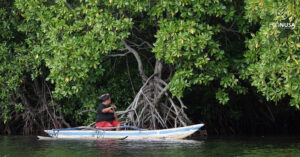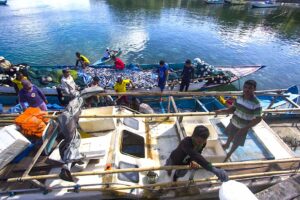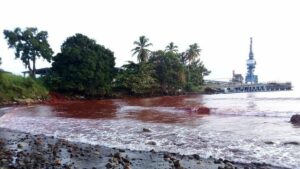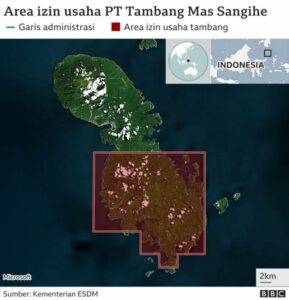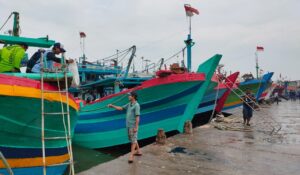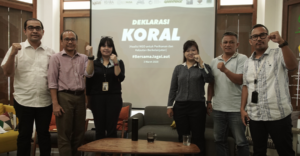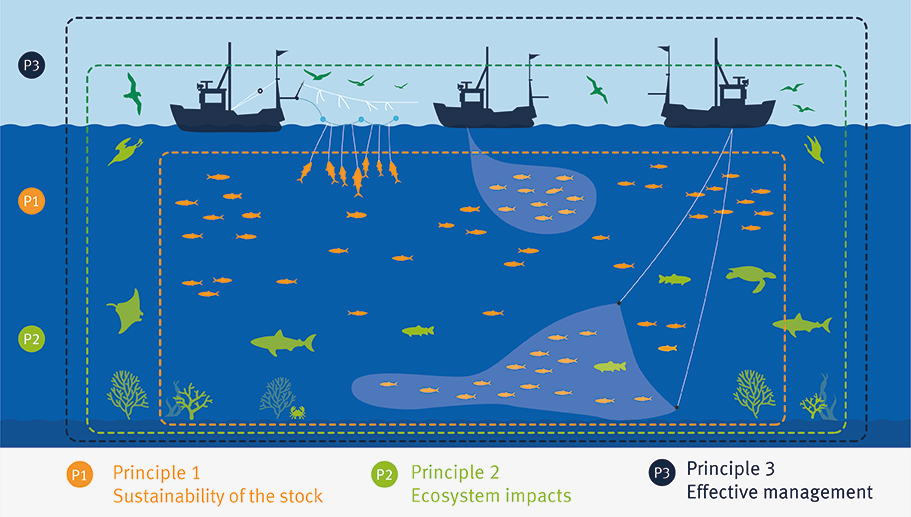
In February, Indonesian Tuna fishery products successfully obtained a certificate from the Marine Stewardship Council (MSC) through the Indonesian Pole and Line and Handline Fisheries Association (AP2HI), specifically for products made of or containing Yellowfin tuna and Skipjack. This certification means that Indonesia, for the third time, will be able to sell certified 11,000 tons of Yellowfin tuna in the United States and European countries. This certification is also a big deal in terms of supporting small-scale tuna fisheries that are rooted in sustainability.
Indonesia is the world’s third-largest producer of tuna fisheries that have met high standards of fisheries sustainability. To achieve this, process-by-process assessment has to be carried out by an independent assessor, such as SAI Global, who conducts the assessment for MSC certification. This was followed by a detailed assessment and stakeholder consultation by the Western and Central Pacific (WCPFC), which is the body responsible for 60 percent of the world’s tuna catch, as well as the Central and Provincial Governments. In the process, the certification involved 380 fishing vessels spread across the Indonesian archipelago, from North Sulawesi and North Maluku to the Banda Sea, East Flores, and West Flores. All of this is part of the commitment to cooperation between the Ministry of Marine Affairs and Fisheries (KKP) and MSC.
The Marine Stewardship Council (MSC) is a non-profit environmental organization that certifies global standards for sustainable fisheries. Having the vision and mission to restore and contribute to marine health and the sustainability of seafood products for the next generation, MSC has several assessment standards that are used before a fishery business entity is said to be eligible for the MSC Label certificate. These fisheries bodies will later be assessed by accredited independent certifiers or called Conformity Assessment Bodies (CABs).
There are 3 assessment principles that will be seen from a fishery business entity before being declared to have passed the certification:
Sustainable Fish Stocks – this assesses the number of fish remaining in the sea, as well as patterns and fishing systems, must be at a level that ensures the sustainability of fish stocks for an indefinite amount of time and healthy and productive fish populations.
Minimizing Environmental Impact – this assesses the impact of fishing activities. To pass this assessment, fishing activities must be managed carefully so that other species and habitats in this ecosystem remain healthy.
Effective Fisheries Management – this assesses whether or not fisheries bodies are compliant with relevant laws and be able to adapt to changing environmental conditions. This includes regulations and provisions on the use of fishing gear in accordance with applicable law.
AP2HI Chair Janti Djuari said that the MSC Certificate was achieved by AP2HI with assistance from the International Pole and Line Foundation (IPNLF), which acted as the initial initiator to encourage sustainable fisheries, especially small-scale Yellowfin tuna and Skipjack tuna fisheries. Janti also said that the association’s certification itself is a collaborative effort from the collective industry including support from the Ministry of Marine Affairs (KKP) and Fisheries and a number of other parties.
This achievement deserves to be appreciated and maintained. The existence of a comprehensive collaborative effort between the government and organizations, entrepreneurs, as well as the grassroots level also needs to be carried out to support sustainable and traceable fishing activities like this in the future. Moreover, according to the Coordinating Ministry for Maritime Affairs and Investment, besides tuna, there are other types of pelagic and demersal fish which are the main commodities of Indonesian marine products such as several types of shrimp, squid, octopus, tilapia, and seaweed. This effort should also be coupled with the existence of a number of KKP program agendas that are aggressively echoing the increase in exports of fishery commodities such as the National Fish Barn (LIN), the construction of four ports in Banten Province, the construction of the Integrated Marine and Fisheries Center (SKPT) and many more.
The existence of a number of agendas and work programs aimed at increasing the number of exports of marine commodities must also be accompanied by monitoring and supervision of catching fishery commodities which must still pay attention to sustainability, healthy and productive fish stocks, fishing, and fish management that refers to ecosystem health and security and management. In addition to comprehensive, collaborative efforts from various parties ranging from central and local governments, organizations, and entrepreneurs in the field of fisheries, educating fishers and coastal communities is also an important point that must be considered and implemented into a number of programs.
This sustainable and traceable fishing and fish management activity is only one link in the overall effort to make Indonesia’s seas healthy — both in terms of ecosystems and fish stocks. Starting from upstream to downstream, from coastal areas to deep into the sea, everything becomes an inseparable unit in the process of caring for and cleaning the sea from destructive, exploitative fishing that only cares about profits. The hope is that this certification will motivate the government and all parties involved to implement an ecosystem of catching and managing fish and other marine commodities that have the spirit of sustainability, transparency, and trackable to ensure a healthy ocean future for the next generation.
******
